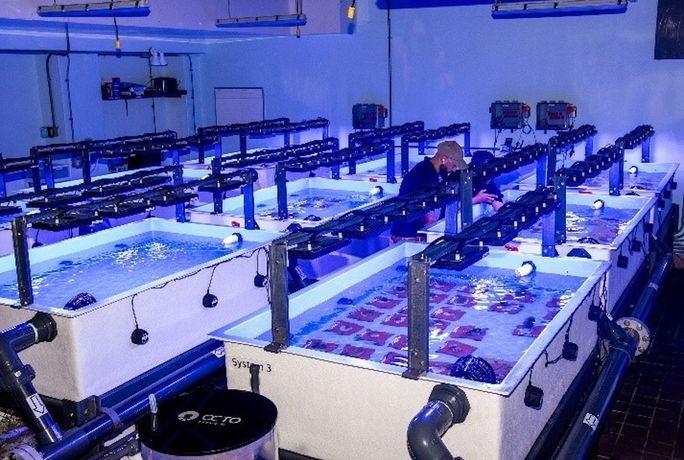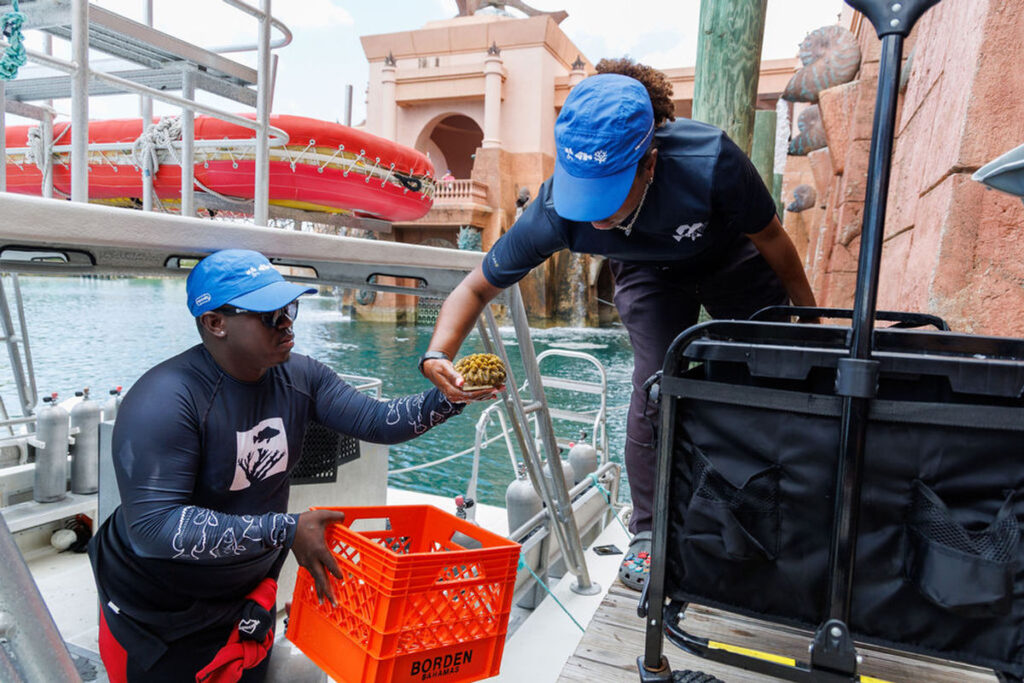
The Bahamas has just taken a major step in preserving its marine ecosystems with the launch of its first-ever coral gene bank, located at Atlantis Paradise Island. Designed to combat rising sea temperatures and a fast-spreading disease threatening the region’s coral reefs, the facility is part of a wider national effort to restore and protect marine biodiversity.
The initiative—led by the Bahamian government in partnership with Atlantis Paradise Island, the Atlantis Blue Project Foundation, the Perry Institute for Marine Science (PIMS), the University of The Bahamas, and the Bahamas Agriculture and Marine Science Institute (BAMSI)—aims to collect, store, and replant healthy coral colonies in damaged reef areas across the islands.
“Today’s opening marks a major milestone and also represents just the beginning,” said Debra Erickson, Executive Director of the Atlantis Blue Project Foundation. “The Bahamas Coral Gene Bank at Atlantis Paradise Island is more than a facility—it is a symbol of hope, a safeguard for biodiversity, and a strategic investment in long-term reef resilience. It not only strengthens national conservation capacity but also inspires young Bahamians to take on leadership roles in the stewardship of our natural resources.”
The new facility is capable of supporting up to 200 mature coral colonies, along with juvenile corals and smaller fragments. So far, 15 coral species have been relocated to the secure on-site aquariums, where they are nurtured using advanced reproduction techniques, including simulations of the lunar cycle to stimulate coral spawning. Once stabilized, these corals can be replanted in the wild, helping restore damaged reef systems.

The Bahamas Coral Gene Bank at Atlantis Paradise Island. (Photo Credit: Atlantis Paradise Island)
The coral gene bank is also part of the Association of Zoos and Aquariums’ global SAFE (Saving Animals From Extinction) program. Day-to-day operations are managed by coral scientists from PIMS, supported by interns and graduates from BAMSI and the University of The Bahamas, as well as marine-life experts from Atlantis.
“Coral has become increasingly endangered over the years, but the introduction of Stony Coral Tissue Loss Disease completely changed the game and created extreme urgency to act,” said PIMS Executive Director Dr. Craig Dahlgren. “Transmitted among corals through direct contact and water circulation, the disease has spread to all major Bahamian islands and causes a high death rate in corals. Treatments are emerging slowly, but corals need to be rescued and isolated from the disease while these methods are perfected.
“Our collective vision is not only to preserve coral currently under threat, but also to foster new generations of corals that, when replanted, are more resilient to disease and other dangers. Longstanding support from our partners over the past decade, including vital contributions that helped establish The Bahamas Coral Gene Bank at Atlantis Paradise Island, has been essential in making this national effort possible,” he said.
The Coral Gene Bank at Atlantis Paradise Island represents a groundbreaking effort aimed at protecting every coral species in The Bahamas from threats like disease, bleaching and environmental stressors.
For the latest travel news, updates and deals, subscribe to the daily TravelPulse newsletter.

